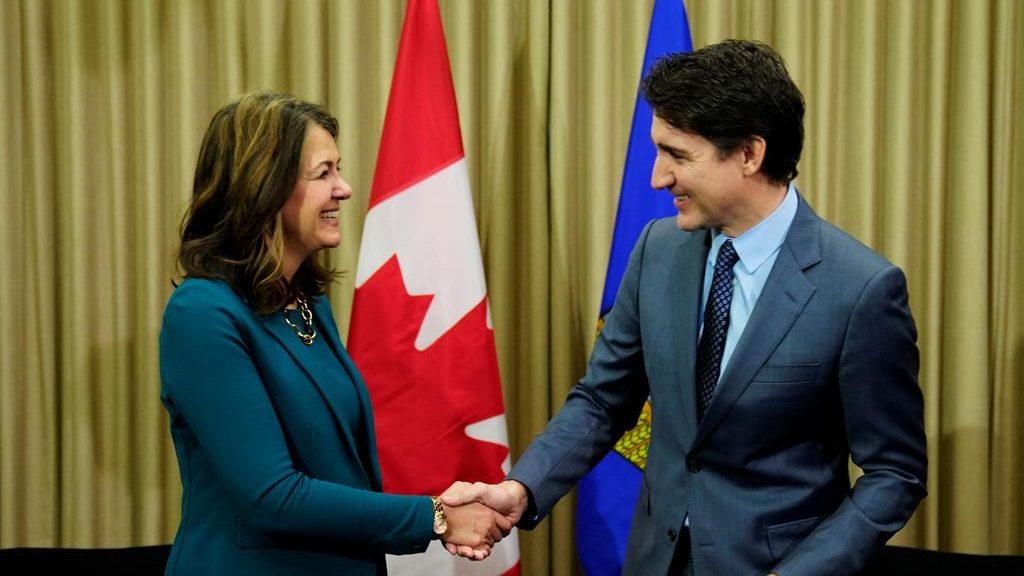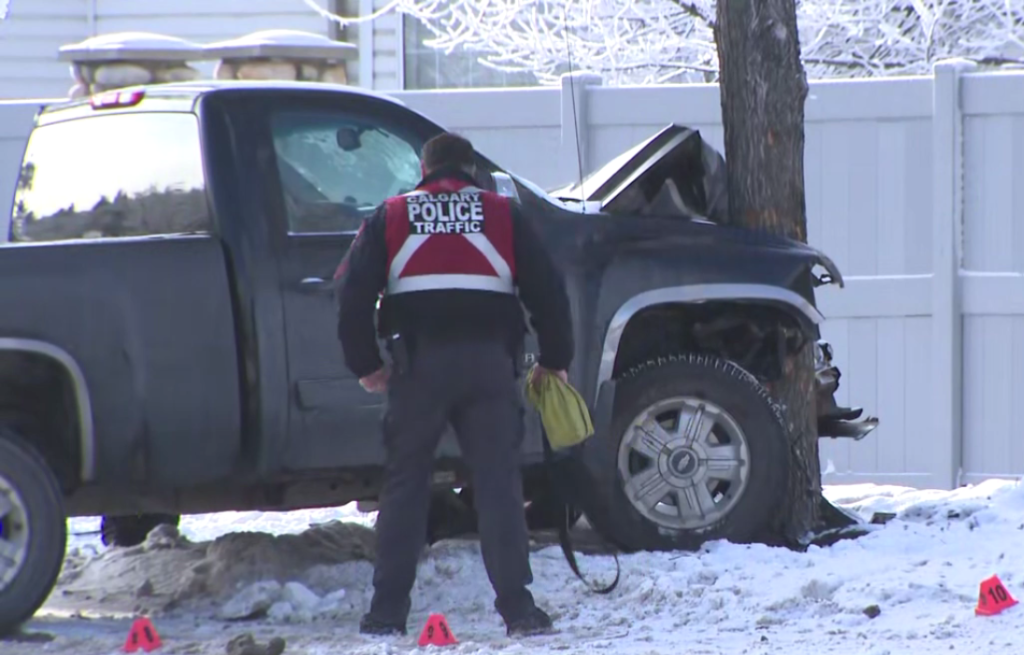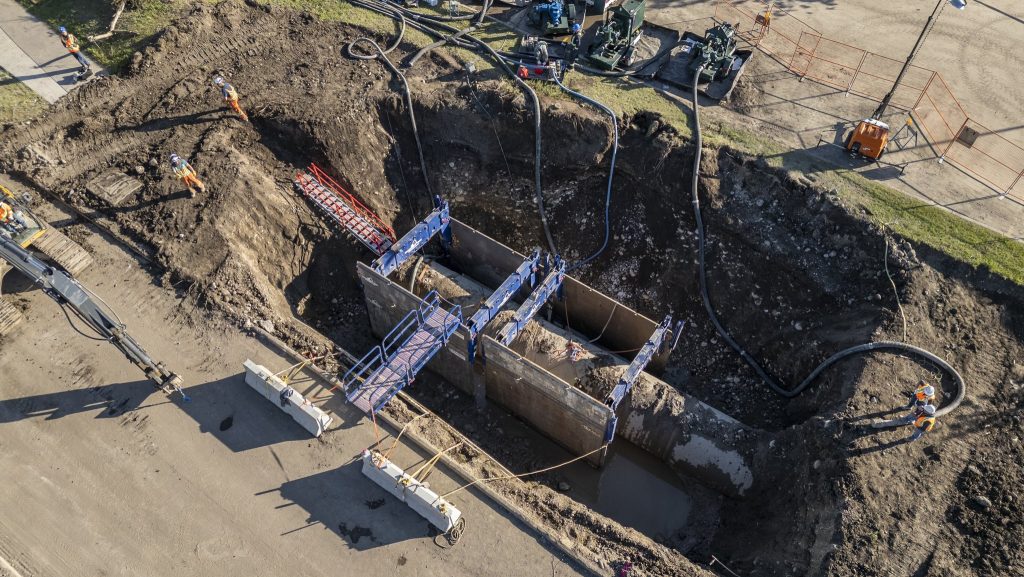‘My job is not to be popular,’ Trudeau says after pressed to ditch carbon price hike

Posted Mar 13, 2024 2:00 am.
Last Updated Mar 13, 2024 2:42 pm.
Prime Minister Justin Trudeau pushed back Wednesday on growing demands from premiers to dump the planned April 1 hike to the consumer carbon levy, saying leaders must tackle both affordability and climate change.
“My job is not to be popular,” Trudeau said, briefly pausing and adding with a wry smile, “Although it helps.”
“My job is to do the right things for Canada now and do the right things for Canadians a generation from now.”
Trudeau made the comments to reporters in Calgary after meeting earlier in the day with Alberta Premier Danielle Smith for the first time since last summer.
She and six other premiers have called on Trudeau to abandon the 23-per-cent hike to help Canadians already dealing with squeezed household budgets.
Conservative Opposition Leader Pierre Poilievre has also railed against the levy and in a statement Wenesday said his party plans to force multiple votes in Parliament next week to nix the hike.
Trudeau told the news conference it’s easy for governments to put off taking action on climate change so that it’s not their problem while they’re in office and for “short-term thinker politicians” to fight putting a price on carbon.
“Why are so many people still against (the carbon levy)? “ he asked rhetorically at an unrelated announcement about the government’s dental care program.
“Well, you know, that’s a question we all have to ask.”
He said using market mechanisms, like a carbon price, to lower greenhouse gas emissions is the best way to address the issue, rather than with the “heavy hand of government” through measures like regulations and subsidies.
“I prefer a cleaner solution, a market-based solution, of saying, ‘You know what? If you’re behaving in ways that are gonna cause pollution, that is going to impact the whole community, you should pay for that pollution, so the community then doesn’t suffer the negative sides of it or have to clean it up on their own dime.'”
Earlier Wednesday, as the premier and prime minister smiled and shook hands for the cameras, Smith thanked Trudeau’s government for pushing through the Trans Mountain pipeline expansion to the B.C. coast.
But she said they still have areas of contention.
“An area where we don’t quite see eye-to-eye (is) the carbon tax,” said Smith.
“Seven premiers have suggested that we need a pause on April 1, so I’m very hopeful that we can maybe come to some solution on that (and) address issues of affordability.”
Trudeau responded by saying as the levy rises, so do rebates.
“As of the beginning of April, the average family of four in Alberta will get $1,800 a year with the Canada Carbon Rebate,” he said.
“That’s money in people’s pockets even as we fight climate change.”
Poilievre, in a statement, said it’s time to force votes in the house to help families.
“If Trudeau insists on hiking the tax on food, heating and gas, then it’s time for Liberal and NDP MPs to stand up to Justin Trudeau to bring home lower prices,” he said.
“The ability of Canadians to put food on the table and fuel in their cars is more important than protecting Justin Trudeau’s fading political career.”
Canada’s carbon price is set to rise by $15 to $85 on April 1.
Some premiers have said this is concerning, given Canadians are already dealing with ever-rising costs for day-to-day living.
In addition to Alberta, the governments of Nova Scotia, New Brunswick, Newfoundland and Labrador, Prince Edward Island, Ontario and Saskatchewan have spoken out against Ottawa’s approach to carbon pricing.
This week, Newfoundland Premier Andrew Furey wrote to Trudeau urging him to “pause” the carbon levy hike, “at least until inflation stabilizes, interest rates lower and related economic pressures on the cost of living sufficiently cool.”
Nova Scotia Premier Tim Houston also wrote to Trudeau, calling for a different solution to fight climate change and “cancel the carbon tax before any more financial damage is done.”
P.E.I. Premier Dennis King wrote to Trudeau that his government is committed to reducing greenhouse gases, acknowledging how susceptible the island province is to extreme weather, but that many residents are facing affordability challenges.
“While I appreciate the exemption provided to the carbon tax for residential heating oil last fall, a sustained period of inflation has significantly increased our cost of living,” wrote King.








